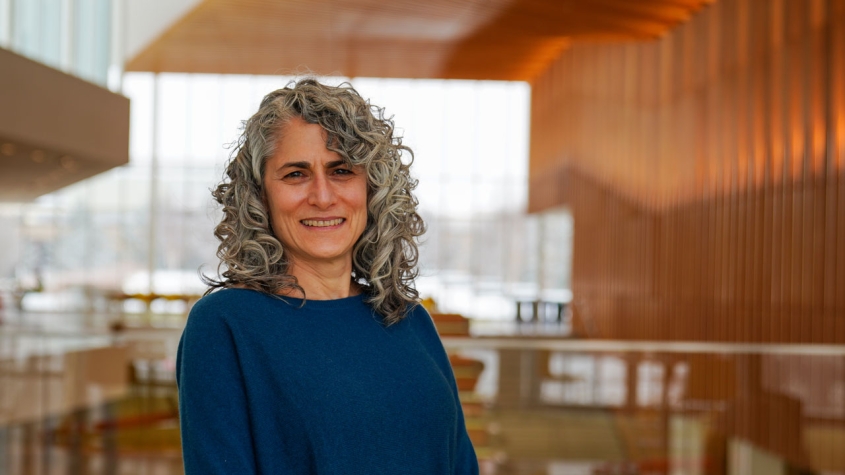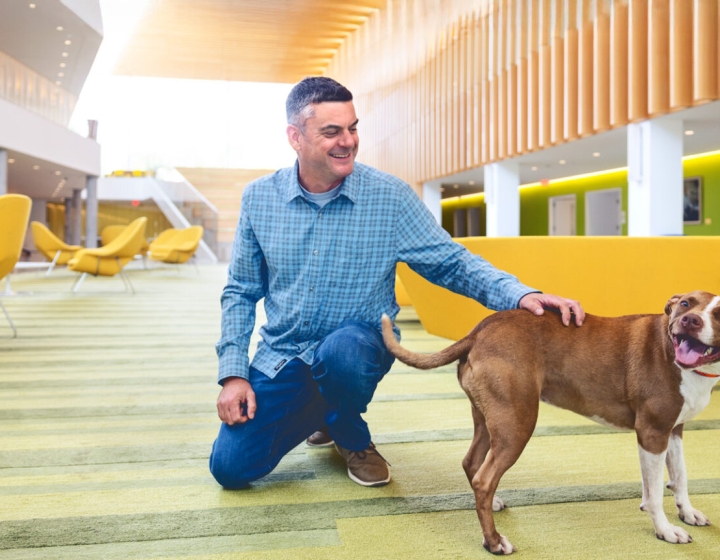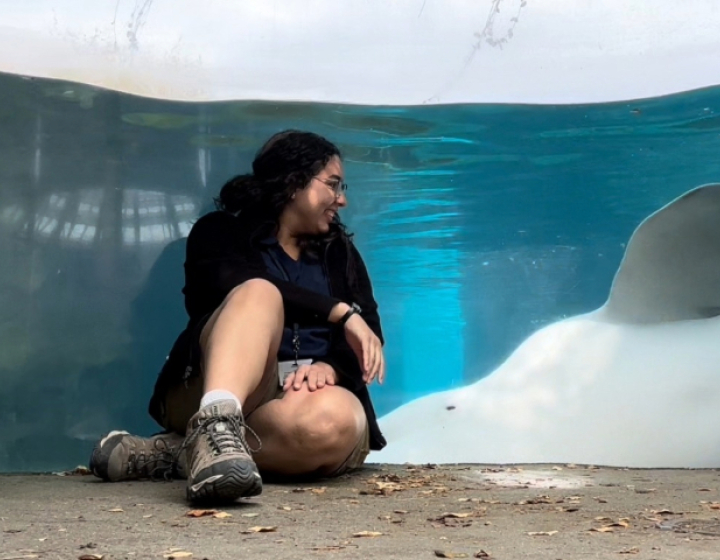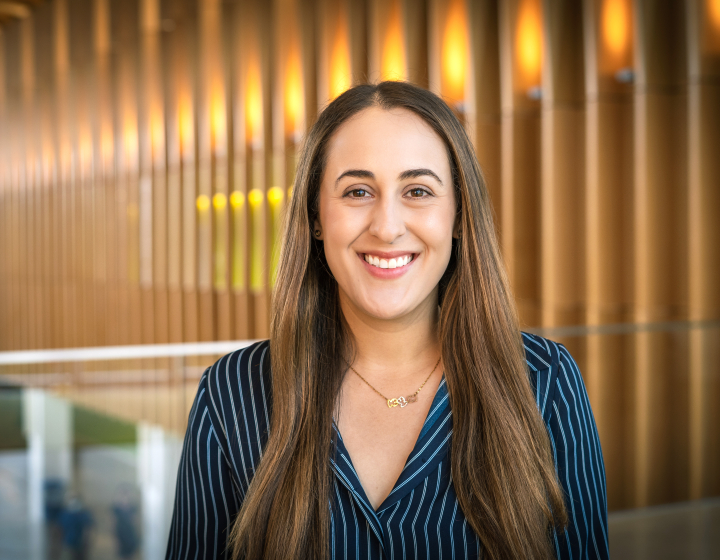New faculty profiles: Dr. Karen Hirsch
The Cornell University College of Veterinary Medicine (CVM) has recently welcomed many new faculty members to our academic departments, each one bringing a unique set of skills and experience that enriches our college every day. In this Q&A series, you'll get to know their interests, expertise and more.
Karen Hirsch ’85, D.V.M. ’89, lecturer in the Department of Biomedical Sciences
Q: What has been your academic/career path leading up to Cornell?
A: I am an ‘85 graduate of the College of Agriculture and Life Sciences and an ’89 graduate of CVM. After completing an internship in small animal medicine and surgery, I practiced companion animal medicine (exotics and cats and dogs initially, and later just cats and dogs) for over 20 years, with a few intervening years of other endeavors sprinkled throughout.
Since leaving the Ithaca area after graduation, I have lived and worked in Massachusetts, Texas, Botswana, New York City and Virginia. I have been both an associate and a relief veterinarian, and I’ve practiced in low- and high-income locales as well as urban, suburban and rural areas. Along the way, among other endeavors, I gained experience in environmental education (at a zoological facility in Texas) and taught game scouts basic anesthetic monitoring and clinical pathology techniques.
Q: What drew you to CVM?
A: I returned to CVM when my husband accepted a professorship at the Veterinary College. This move allowed me to pivot to veterinary education, something I had been thinking about for a while.
Q: What is your area of expertise?
A: Small animal general practice is my clinical area of expertise. My teaching interests are in clinical competency, preparing veterinary students for real world practice and in fostering the human-animal bond.
Q: What drew you into this area? Any specific experiences, mentors, influences that helped guide you?
A: My interest in instructing students comes from the excellent guidance I received as a student. Three instructors stand out for the way they taught basic clinical skills and the enthusiasm with which they taught them: Dr. Hornbuckle, Dr. Harvey and Dr. de Lahunta. They helped me to become a proficient clinician. Having solid basic skills such as performing a physical exam, knowing basic surgical skills, being able to carry out a neuro exam, as well as a good understanding of clinical anatomy, all gave me something to hang onto in the early days of my career when I was figuring out the more complex aspect of being a clinical veterinarian. They provided me with an excellent foundation and passed on their love of clinical care. I would like to pass on that enthusiasm, if not the exact same skills, as I help prepare veterinary students for clinical practice.
Q: What past professional work are you most proud of and why?
A: I completed an internship in small animal medicine and surgery immediately after veterinary school. This internship was very difficult and did not provide the level of mentoring I was hoping for. However, it did provide me with an enormous caseload so that I did receive a very thorough clinical education just by the sheer volume and range of cases that I was able to see and manage.
Q: What about your clinical work are you most excited for or proud of and why?
A: Helping my patients and their humans has always been paramount to me. That has meant that if a case was more involved than I was comfortable with, I never hesitated to seek help. Help could have been reaching for a textbook, talking to my coworkers for advice, calling a specialist or referring the client to a specialist. I never let the fact I might not know something stop me from providing the best care possible I could provide to my patients and clients. I want to pass this concept on to students: You don’t have to know everything – you just need to know where to go get assistance.
Q: What impacts or applications do you hope to see your work have on the world, human/animal/planetary health?
A: My goal within CVM is to help prepare veterinary students for real world practice and to help them foster the human-animal bond between their future patients and clients.
Q: What clinical/scientific questions are you looking to answer next or areas you plan to explore?
A: I was offered the wonderful opportunity to take over the Small Animal Euthanasia course that was designed by Ari Boltax, D.V.M. ’18. Euthanasia is an important part of the job of a general practitioner (and many specialists) but is an aspect of veterinary medicine that in the past has received very little attention in the curriculum. This is changing, albeit slowly, and I am excited to explore and be a part of the change to help make veterinary students more comfortable with end-of-life discussions in general, palliative care and euthanasia in particular as a treatment option.
If graduates are more comfortable with discussing and performing euthanasia and then dealing with owner grief, they will be able to provide the emotional support that has been shown to be highly beneficial to bereaved owners. Not only will owners benefit from this education, but enhanced training in all aspects of euthanasia (including preparation to deal with their and the owner’s emotions) makes burnout, compassion fatigue and empathy exhaustion less of a threat to our graduates.
Q: What’s the best part of being a clinician?
A: The same answer I would have given you when I was seven years old and someone asked me why I wanted to be a veterinarian: I get to help animals.
Q: What’s the most challenging part?
A: The most challenging part of being a clinician is that in trying to help my patients, we veterinarians often scare them. Like most clinicians, I wish that my patients could at least understand that the things that I do that might inadvertently hurt or frighten them are done out of love and a desire to help them. At least their humans know.
Q: What are the benefits of working at CVM? At Cornell?
A: I feel honored to be involved with a world-class veterinary college at a prestigious university, to be able to work with amazingly dedicated coworkers and students and to be given the chance to do my best to have a positive impact on the next generation of veterinarians.






